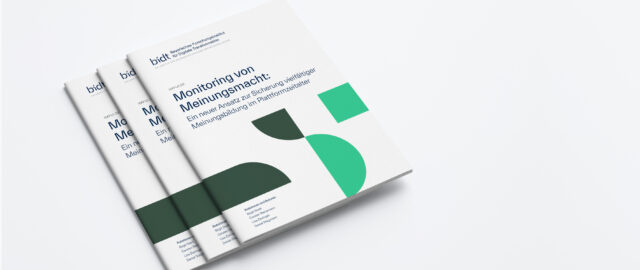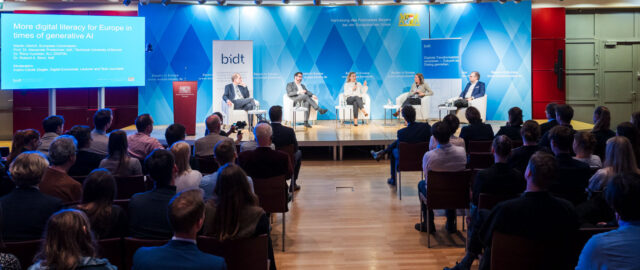Topic: Digital public sphere
Digital media, fake news, and the power of opinions – never before have we had access to so much information. How can we shape public discourse, political coordination, and participation? What rules are necessary for a digital public sphere?

Monitoring opinion power: A new approach to ensure diverse opinion formation in the platform age
This policy brief shows how contemporary opinion power monitoring could look like and outlines the need for action.

Promoting digital competence and critical judgement in the age of artificial intelligence
How well prepared is Europe for generative AI and an increasingly digitalized society? Experts discussed this at the bidt event “More digital literacy for Europe in times of generative AI“ in Brussels.
Award for Sarah Rachut
Sarah Rachut was honoured as a Young Leader in GovTech 2024 in the “Science & Civil Society” category.

Gamification
The term gamification refers to the use of game elements, i.e. design elements and mechanics from games, to create playful experiences in fields of application outside of board games or computer games.

“We must retain the joy of thinking and embrace new things!”
AI can solve many problems, but not all. In his lecture “What does ChatGPT mean? Opportunities and challenges for us all” on 17 January 2024, Professor Alexander Pretschner explained the importance of generative…

Digital participation
Digital participation refers to the social involvement of stakeholders in political and social decision-making and opinion-forming processes with the help of digital information and communication technologies.





